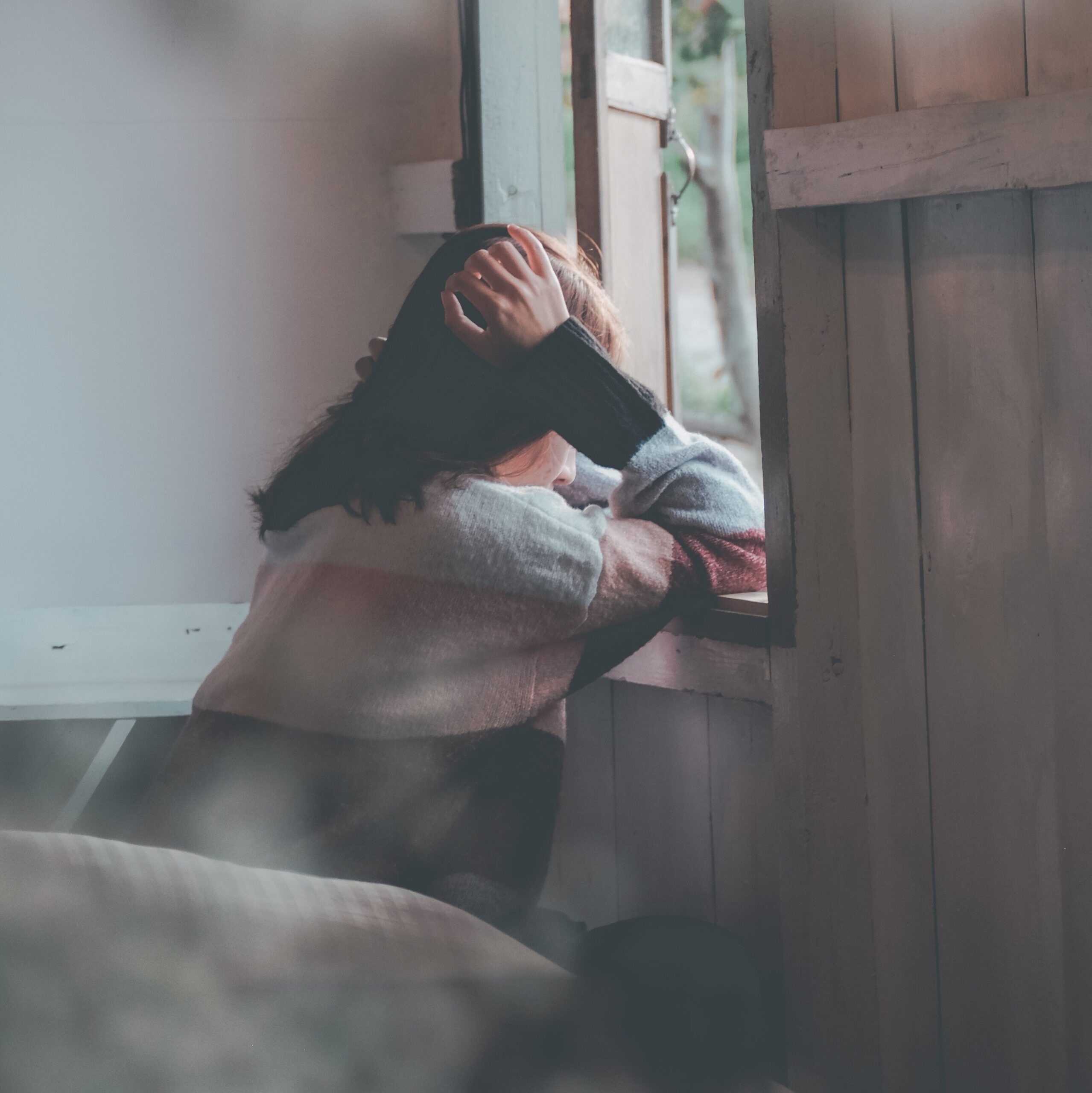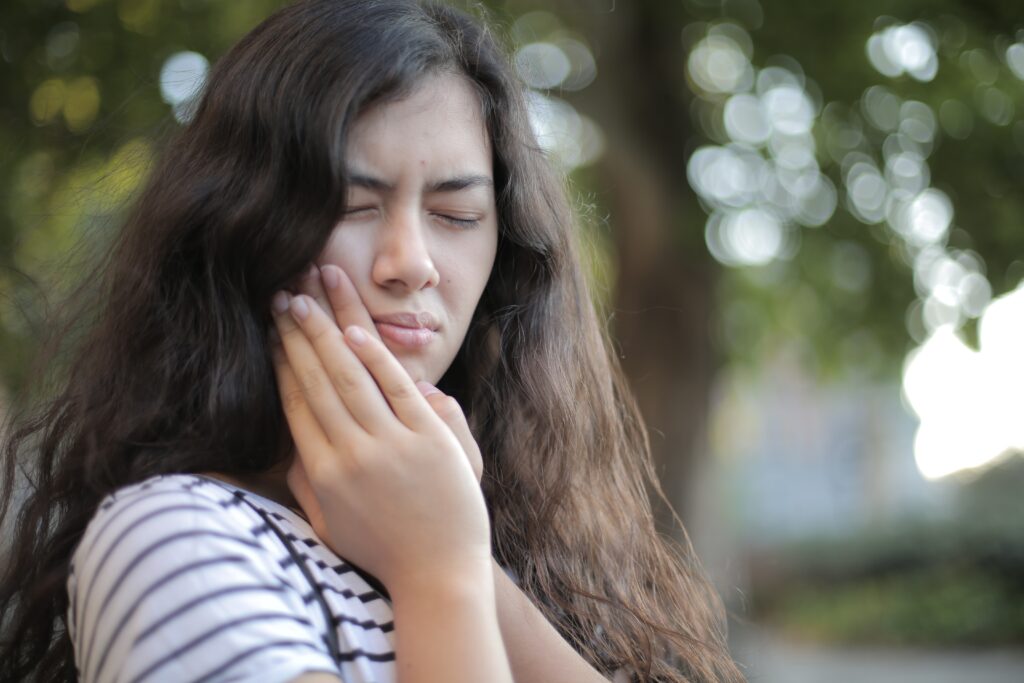7 Signs of Depression That Go Unnoticed

Hey, Psych2Goers! Happy Mental Health Awareness Month! As someone who is diagnosed with mental health conditions, I’m pretty thankful to have a month dedicated to spreading awareness of medical conditions that can’t be seen
In the spirit of spreading awareness, let’s talk about identifying a potential condition. When you think of depression, what do you think of? Being sad? Thoughts related to death? Unanswered calls or texts? These are all very common and noticeable signs of depression, but did you know there are more subtle signs of depression that can fly under the radar? Let’s check out 7 signs of depression that go unnoticed.
Side note: This article is not meant to diagnose any individual nor is it a substitute for professional therapy. If you or a loved one have shown any of these signs and are concerns, please reach out to a mental health professional to explore in depth.

#1: You toggle between emotions depending on your surroundings.
When we think of depression, we think of the person being sad all the time, but did you know that this isn’t always the case? A subtle sign of depression is when an individual flips between the traditional sadness and happiness. What’s the trigger? It’s the scenario and setting. An example of this could be being sad when you’re alone but really happy when out with friends. Having people around or something to keep your mind off of things allows for a breath of fresh air, so to speak. This can also be something called “forced happiness” where the person feels inclined put on a smile for others.
A group of researchers led by Angel Leis found that “Twitter users who are potentially suffering from depression modify the general characteristics of their language and the way they interact on social media.” (2019.) You may notice them sending you more negative texts or seeing darker posts on their social media accounts. However, when you hang out in person, they’re completely happy. This online persona allows them to be and say what they want.

#2: You notice changes in your habits.
There’s a certain stigma around being up late in the wee hours of night. It’s dark, mysterious, quirky, whatever. When you see posts or texts from a friend in those early hours, you may not think anything of it, but when you notice it more consistently, this could be cause for concern. Other habits that can be disrupted can be eating, bathing, getting dressed, and going to work/school or other appointments. Ignoring these basic human needs is a way of not caring for yourself, and it could be a sign that there are more things at play than just being tired or feeling like you’re lazy.

#3: You start blaming yourself for things (even if it’s not your fault).
When you’ve done something, it’s responsible of you to take accountability for it. However, do you notice someone apologizing for everything? “I spilled juice on my shirt!!” They say “Sorry.” “It’s raining! I wanted to go running”! They say “Sorry.” They didn’t make you spill juice on YOUR shirt. They didn’t make it rain and purposely ruin the day, but they take accountability for it. This can even manifest as remembering or reliving an embarrassing past memory. This inability to move on from the memory or a feeling of guilt can leave someone feeling depressed.

#4: You’re not going where or doing what you used to.
Have you noticed a certain friend has declined a lot of your invitations to hang out lately? Do you notice they’re not really going anywhere but work or school and back home? Maybe there’s a friend who still attends practice or rehearsal but has lost all enjoyment for the activity. These are all signs of potential depression. When in a depressed state, activities that used to produce dopamine don’t cause your neurotransmitters to react the same way causing you to not feel that same joy.
This is another sign that can be paired with “toggling” mentioned in #1. The individual may feel like they need to match their previous high spirits and hide their new emotions just to “not bring the mood down.”

#5: You have difficulty making decisions.
When you ask your significant other to hang out, it’s nice to get some input on what they want to do. Every once in a while, it’s also okay to leave the decision up to them. Someone who may have depression may not have any opinion ever. It can be as small as what to eat for dinner or more difficult like decision what to major in or deciding what your budget will look like. This can mean that the individual doesn’t feel like they’re good or smart enough to make the right decision. Pushing away the responsibility of making a decision can be a good indicator of possible depression.

#6: You’re always on edge.
Irritability is a common symptom of mental health conditions, but how can you tell the difference? Let’s say you’re crushing on someone, and your friend knows it. If your friend starts flirting with your crush in front of you, this is a situation where being irritable is valid and a reasonable response. Let’s try this scenario. You have a roommate and one TV in the living room. You want to watch a movie after work, but when you come home, your roommate is already watching something. This causes you to blow up on your roommate. I don’t know, but the punishment doesn’t quite fit the crime here. Sure, it’s annoying to see the TV being used, but it’s something some simple communication can solve. You can ask your roommate if they would mind you watching a movie after their show/movie is over. That kneejerk reaction to get angry can be a sign of other mental health concerns like depression.

#7: You feel physical pain.
Have you ever felt pain somewhere, like a muscle ache or a headache, and you have no idea where it came from? This happens to me all the time! It feels like I fell or did a two-hour workout. In reality, I sat at my desk for 10 hours then stood for a little bit while putting dinner together. Maybe a quick yoga sesh (like 15 minutes), but nothing that would make me be in THAT much pain.
When you feel physical pains consistently, it’s always a good idea to consult a medical professional to determine if there are any underlying reasons why you might be feeling pain. If nothing is found, it may be a good next step to contact a trusted mental health provider.
Did any of these signs come as a shock to you? Have you noticed these or other signs of depression in yourself or a loved one? Let us know in the comments below! Mental health is so important for our health and to ensure we’re the best version of ourselves. If you or anyone you know is concerned that they may be showing signs of depression, please consult a professional mental health professional. You’ve got this! As always, keep an eye on Psi for more Psych2Go content.
Have a great day!
Need more information about identifying depression? Check out 6 Signs of Depression
The references used in and to compose this article are listed below.
Harvard Medical School. (2021, February 15). Are you missing these signs of anxiety or depression? Harvard Health. Retrieved May 5, 2022, from https://www.health.harvard.edu/mind-and-mood/are-you-missing-these-signs-of-anxiety-or-depression
Hayley. (2020, May 20). 10 symptoms of Depression – FACTY Health. Facty. Retrieved May 5, 2022, from https://facty.com/conditions/depression/10-symptoms-of-depression/10/
The Healthline Editorial Team. (2019, March 21). 9 depression symptoms to look out for. Healthline. Retrieved May 5, 2022, from https://www.healthline.com/health/depression/recognizing-symptoms
Leis, A., Ronzano, F., Mayer, M. A., Furlong, L. I., & Sanz, F. (2019). Detecting signs of depression in tweets in Spanish: Behavioral and linguistic analysis. Journal of Medical Internet Research, 21(6). https://doi.org/10.2196/14199
Leonard, J., & Legg, T. J. (2019, June 19). Hidden signs of depression: How to spot them and what to do. Medical News Today. Retrieved May 5, 2022, from https://www.medicalnewstoday.com/articles/325513#alcohol-or-drug-use
Walton, A. G. (2022, April 14). Depression isn’t always what you think: The subtle signs. Forbes. Retrieved May 5, 2022, from https://www.forbes.com/sites/alicegwalton/2015/02/17/the-subtle-symptoms-of-depression/?sh=63a400741a3e



Responses